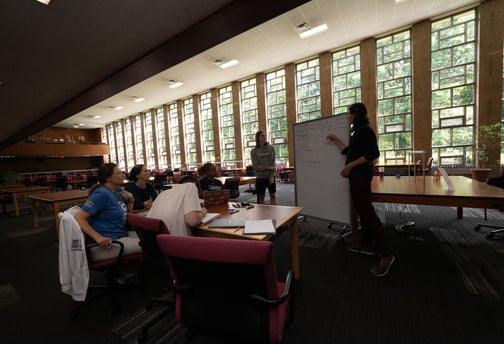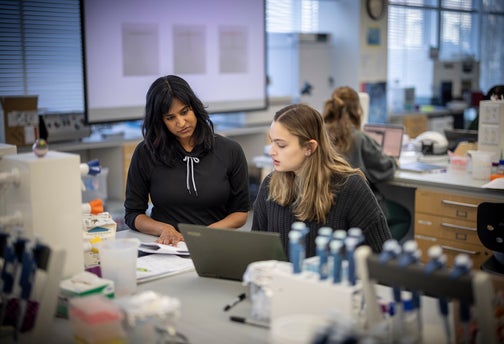How do companies hire and retain the best people? What is at the heart of company culture?
Industrial/Organizational Psychology, or the science of behavior in the workplace, represents the intersection of psychology and business. Industrial/Organizational psychologists assess human behavior for the purposes of improving employee work satisfaction, employers’ ability to recruit and promote the best people, and the overall workplace environment for everyone.
Emmanuel’s minor in I/O Psychology is an ideal complement to majors in business or psychology, or if you are interested in the human resources field as a whole.


